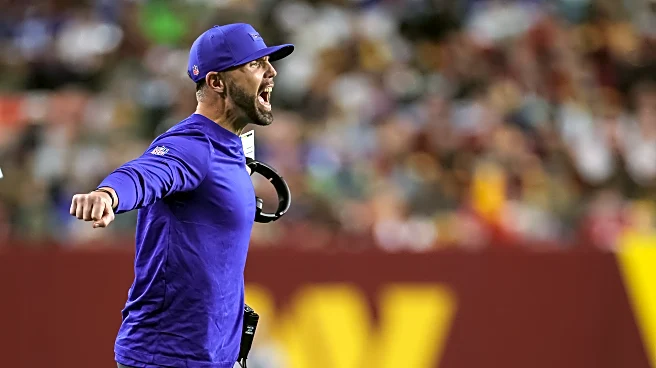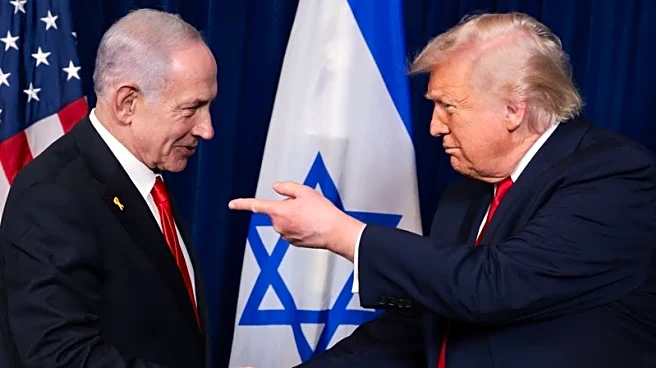What's Happening?
Robert F. Kennedy Jr., appointed by President Trump as the head of the Department of Health and Human Services (HHS), has been implementing controversial policies that have drawn significant criticism. His approach, particularly towards vaccine programs, has led to widespread disapproval among health professionals. Recently, six former U.S. Surgeons General expressed their concerns in an op-ed, warning that Kennedy's policies pose a 'profound, immediate and unprecedented threat' to public health. Under Kennedy's leadership, the HHS has seen the firing of thousands of staff and the resignation of key figures at the Centers for Disease Control and Prevention (CDC), including its director. The former Surgeons General argue that Kennedy's actions have undermined the nation's public health system, prioritizing ideology over science and expertise, which has resulted in declining morale and a talent exodus from health agencies.
Why It's Important?
The criticism from six former Surgeons General highlights the potential risks Kennedy's policies pose to the U.S. public health infrastructure. By sidelining scientific expertise and promoting misinformation, Kennedy's approach could lead to increased vulnerability to infectious diseases and chronic illnesses. The departure of experienced health professionals from key agencies like the CDC could weaken the nation's ability to respond effectively to health crises. This situation may also affect public trust in health institutions, potentially leading to lower vaccination rates and increased health risks. The broader implications of Kennedy's policies could have lasting effects on public health policy and the nation's ability to manage health emergencies.
What's Next?
The ongoing criticism from health professionals and former Surgeons General may lead to increased scrutiny of Kennedy's policies and leadership. There could be calls for legislative or executive actions to address the concerns raised and to ensure that public health decisions are guided by scientific evidence. Stakeholders, including lawmakers and health advocacy groups, might push for reforms to restore confidence in the HHS and CDC. The situation may also prompt discussions on the qualifications required for leadership roles in health agencies, emphasizing the need for medical expertise in decision-making processes.
Beyond the Headlines
Kennedy's approach raises ethical questions about the role of ideology in public health policy. The prioritization of non-scientific beliefs over evidence-based practices could set a concerning precedent for future health leadership. This situation also highlights the cultural and political dimensions of health policy, where partisan divides can influence public health decisions. The long-term impact of Kennedy's policies may lead to shifts in how health agencies are perceived and operated, potentially affecting the nation's overall health outcomes.










